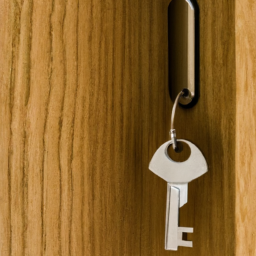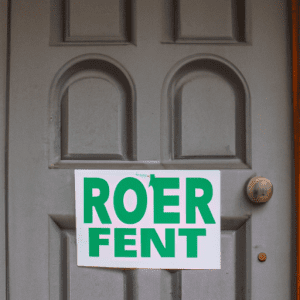In the fast-paced world of renting, navigating communication with your landlord can sometimes feel overwhelming, especially when you’re also dealing with mental health challenges. This article explores the intersection between renting and mental health, discussing how to effectively communicate with your landlord and understand your rights as a renter. By providing helpful tips and insights, this article aims to empower individuals to maintain positive mental well-being while navigating the complexities of renting.
Understanding the Impact of Housing on Mental Health
The prevalence of mental health issues in rental populations
Renting a home is a common living arrangement for many individuals and families around the world. However, it is important to recognize that the experience of renting can have a significant impact on mental health. Studies have shown that individuals in rental populations are more likely to experience mental health issues compared to those who own their homes. The high cost of rent, limited control over living conditions, and the potential for unstable housing situations all contribute to these mental health challenges.
The connection between unstable housing and mental health
Unstable housing situations can have a detrimental effect on mental health. The constant worry and uncertainty that comes with not knowing if you will have a place to live can lead to increased anxiety and stress. Additionally, frequent moves and housing insecurity can disrupt a person’s support system, making it more difficult to maintain social connections and access necessary resources for mental well-being. It is crucial to understand that stable and secure housing is a vital factor in promoting good mental health.
How housing conditions can contribute to mental health problems
The conditions of a rental home can also have a significant impact on mental health. Poor living conditions, such as mold, pests, and insufficient heating or cooling systems, can effectively create an unhealthy environment. These conditions can worsen existing mental health conditions or even contribute to the development of new ones. Living in a space that is not adequately maintained can cause increased stress, anxiety, and a general feeling of unease. It is essential to address housing conditions that may be affecting your mental health to create a healthier living environment.
Importance of Communication with Landlords
Establishing effective channels of communication
Open and honest communication with your landlord or property manager is crucial for maintaining a healthy and supportive living environment. Establishing effective channels of communication from the beginning can help address any concerns or issues that arise promptly. Whether it is through email, phone calls, or in-person meetings, finding a communication method that works for both parties is essential.
The role of open and honest conversations
Engaging in open and honest conversations with your landlord about your mental health concerns can foster understanding and support. It is important to remember that landlords are human too and may not always be aware of the impact housing conditions or rental policies can have on mental well-being. By sharing your experiences, concerns, and needs, you can foster a supportive environment that promotes better mental health.
Addressing mental health concerns with your landlord
When communicating with your landlord about mental health concerns, it is essential to approach the conversation with clarity and compassion. Clearly explain the specific issues that are affecting your mental health and provide any supporting evidence if necessary. Additionally, offer potential solutions or accommodations that could alleviate the problem. Collaborating with your landlord to find suitable solutions can lead to a more positive living experience.
Know Your Rights as a Renter
Understanding local rental laws and regulations
As a renter, it is crucial to understand the rental laws and regulations that apply to your specific area. Familiarize yourself with the rights and responsibilities outlined in these laws to ensure you are protected. These laws vary from location to location but typically cover areas such as eviction procedures, habitability standards, security deposits, and lease agreements.
Key rights and protections for tenants
Knowing your rights as a tenant can empower you to navigate any legal challenges that may arise. Some key rights and protections commonly found in rental laws include the right to a habitable living environment, protection against illegal discrimination, and the right to privacy. Understanding these rights can help you advocate for yourself and protect your mental well-being.
Resources for accessing legal assistance and support
If you find yourself facing legal challenges or issues with your landlord, there are resources available to provide legal assistance and support. Community legal aid organizations, tenant rights groups, and local housing authorities can offer guidance and resources to help you navigate any legal processes or disputes. Seeking legal assistance can ensure that your rights as a renter are upheld and protect your mental health throughout the process.
Negotiating Reasonable Accommodations
Exploring reasonable accommodations for mental health conditions
If you are experiencing mental health challenges, it may be necessary to request reasonable accommodations from your landlord. Reasonable accommodations can help create a living environment that supports your mental well-being. Such accommodations may include modifications to the rental unit, changes to rental policies, or additional support services. Explore the available options and determine what accommodations are necessary for your specific needs.
Understanding the legal obligations of landlords
Landlords have legal obligations to respond to requests for reasonable accommodations under fair housing laws. These laws prohibit discrimination based on mental health disabilities and require landlords to make reasonable accommodations unless it poses an undue burden or fundamentally alters the property’s nature. Understanding the legal obligations of landlords can help you advocate for your rights and ensure appropriate accommodations are provided.
Tips for effective negotiation and communication
When discussing reasonable accommodations with your landlord, effective negotiation and communication can greatly improve the outcome. Clearly articulate your needs and the benefits of the requested accommodations. Provide any relevant documentation or support that demonstrates the connection between the accommodation and your mental health. Being respectful, patient, and open to finding solutions can help foster a positive and productive negotiation process.
Dealing with Housing Discrimination
Recognizing signs of housing discrimination
Unfortunately, discrimination in housing is a reality that many individuals face. Recognizing the signs of housing discrimination is essential in addressing these issues. Discrimination can manifest in various ways, including denial of rental applications, evictions, unequal treatment, or harassment. It is crucial to be aware of these signs and take appropriate action when faced with housing discrimination.
Steps to take when facing discrimination
When experiencing housing discrimination, it is important to take specific steps to protect your rights and address the issue. Keep detailed records of any discriminatory incidents, including dates, times, and descriptions of what occurred. Research your local fair housing agencies and file a complaint with them to investigate the matter. Additionally, consult with an attorney or legal aid organization to explore your options for seeking justice.
Reporting and seeking legal action
Reporting instances of housing discrimination is vital in addressing the issue and preventing it from happening to others. Fair housing organizations, local housing authorities, and civil rights agencies accept complaints related to housing discrimination. Seek legal advice if the discrimination persists or if you believe you have a case for legal action. Remember that fighting against discrimination is not only essential for your own well-being but for the well-being of others in similar situations.
Maintaining a Healthy Living Environment
Effective communication for maintenance requests
Maintaining a healthy living environment is crucial for promoting good mental health. If you encounter issues such as maintenance problems, it is important to communicate your concerns to your landlord. Report any needed repairs or maintenance promptly and provide clear details about the issues. Open communication about maintenance requests can help ensure that your rental unit remains habitable and contributes to your overall well-being.
Addressing concerns about pests, cleanliness, and repairs
Pests, cleanliness issues, and necessary repairs can greatly impact your mental well-being. Ignoring these concerns can exacerbate stress and even contribute to the development of anxiety or depression. If you encounter any of these issues in your rental unit, promptly bring them to the attention of your landlord. Addressing these concerns can help create a healthier and more comfortable living environment.
Seeking community services for support
If you are facing challenges in maintaining a healthy living environment, it is important to seek support from community services. Local organizations and agencies often provide resources and assistance for individuals in rental populations. These services may include access to free or low-cost pest control, cleaning assistance, or resources for repairs. Utilizing these community services can help alleviate the burden of maintaining a healthy living environment on your own.
Setting Boundaries and Privacy
Understanding your right to privacy as a renter
As a renter, you have the right to privacy within your rental unit. Your landlord should respect your privacy and should not enter your home without proper notice or a valid reason. Understanding your rights to privacy can help you set boundaries and ensure that your mental well-being is protected in your living environment.
Communicating boundaries with your landlord
Establishing clear boundaries with your landlord is important for maintaining a healthy living environment. If you find that your landlord is frequently entering your home without proper notice or violating your privacy rights, address the issue directly and respectfully. Communicate your expectations regarding privacy and request that your boundaries be respected. Open and respectful communication can help resolve conflicts and ensure a more comfortable living situation.
Handling intrusive landlord behavior
If you continue to face intrusive behavior from your landlord despite communication about boundaries, it may be necessary to take additional steps to protect your mental well-being. Consult with legal aid organizations or tenant rights groups to explore options for addressing intrusive landlord behavior. It is important to remember that your mental health and well-being should not be compromised by a lack of respect for personal boundaries.
Seeking Mental Health Support
Utilizing community mental health resources
Seeking mental health support is crucial for maintaining good mental well-being. Look for community mental health resources that offer counseling or therapy services. These services can provide a safe space to discuss your mental health concerns and develop coping strategies that are tailored to your specific needs. Taking care of your mental health is essential for overall well-being.
Finding counseling services for renters
Many organizations provide counseling services specifically designed for renters. These services recognize and address the unique challenges that can arise in rental populations. Research local counseling services to find options that specialize in working with renters. Counselors who are familiar with the nuances of renting can provide valuable insights and support for maintaining good mental health.
Incorporating self-care practices into your living situation
In addition to seeking professional support, incorporating self-care practices into your daily life can also contribute to positive mental well-being. Prioritize activities that promote relaxation, stress reduction, and self-compassion. These may include practicing mindfulness or meditation, engaging in physical exercise, spending time in nature, or pursuing hobbies that bring you joy. Creating a self-care routine can help manage stress and maintain good mental health in your rental environment.
Building Supportive Networks
Connecting with other renters facing similar challenges
Building a supportive network is essential for navigating the challenges of renting and promoting good mental health. Seek out connections with other renters who may be facing similar challenges. This can be done through online forums, community groups, or social media platforms. Sharing experiences, advice, and resources can provide a sense of community and support in difficult times.
Joining tenant organizations or advocacy groups
Tenant organizations and advocacy groups are valuable resources for renters. These groups often strive to protect renters’ rights and improve living conditions. Joining such organizations can help you stay informed about current issues, connect with like-minded individuals, and advocate for change. By working together with others, you can promote better mental health and well-being for all renters.
Sharing experiences and resources
Sharing your experiences and resources with others can play a significant role in supporting mental health within the rental community. If you have found helpful resources or strategies for navigating the challenges of renting and maintaining good mental health, share them with others. By sharing experiences and resources, you can contribute to a culture of support and resilience within the rental community.
Promoting Landlord Education
The importance of landlord education on mental health
Promoting landlord education on mental health is crucial for creating supportive and empathetic rental communities. Landlords who are aware of and understand the impact of housing on mental health are better equipped to provide a safe and healthy living environment for their tenants. By advocating for landlord education, you can help improve living conditions and protect the mental well-being of renters.
Advocating for mental health awareness in rental communities
Advocacy plays a vital role in promoting mental health awareness within rental communities. Engage with local organizations, community groups, and tenant associations to advocate for mental health education and resources for both landlords and tenants. By raising awareness and advocating for change, you can help create a more supportive and understanding rental community.
Building relationships with empathetic landlords and property managers
In the rental landscape, building relationships with empathetic landlords and property managers can positively impact mental health. Seek out landlords or property managers who prioritize tenant well-being, address concerns promptly, and strive to create a positive living environment. Building these relationships may lead to better communication, support, and a healthier overall living experience.
In conclusion, understanding the impact of housing on mental health and navigating landlord communication and rights is essential for a positive rental experience. By recognizing the prevalence of mental health issues in rental populations, communicating effectively with landlords, knowing your rights as a renter, negotiating reasonable accommodations, addressing housing discrimination, maintaining a healthy living environment, setting boundaries and privacy, seeking mental health support, building supportive networks, and promoting landlord education, you can create a healthier and more supportive rental environment that prioritizes mental well-being. Remember that your mental health is important, and there are resources and support available to help you navigate any challenges you may face as a renter.




